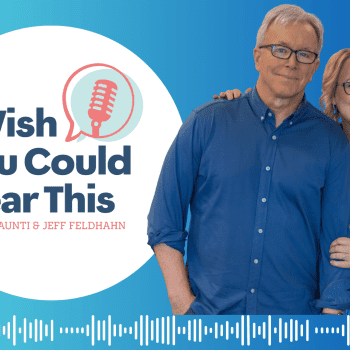Editor's Note: This article is part of an online symposium, "Does Seminary Have a Future?" hosted at Patheos this month. Read other perspectives here. Here Frederick Schmidt responds to Barbara Wheeler's comments.
Am I really Mr. Messy?
Barbara Wheeler begins by observing that I am right on target in having identified four serious challenges that we face as theological educators. But she argues that I have buried theological education without accurately documenting its demise.
Of course, the image is meant to be provocative and if I had been offering an autopsy, the kind of detail that she demands would have been necessary. But my original column was just that. It was a column. And the image of a eulogy was meant to be provocative. I wasn't trying to bury theological education. I was trying to call attention to the fact that it is in chronic distress.
But is she right? Have I buried the victim with generalizations? She offers two reasons to believe that I have. I think she is wrong and I will draw on Auburn's own research to make my point.
As I understand it, Wheeler has two complaints that lead to her charge me with malpractice:
One, she argues that I am mistaken in arguing that theological faculties are poorly grounded in their commitment to the Christian faith and that they are sadly out of touch with the life of the church. As evidence to the contrary, she offers documentation from a study done by Auburn in 2001:
A minority of seminary faculty members is trained "all over," in hundreds of theology and religion programs around the world, but the majority comes from just twenty-five programs, all located in institutions that have programs of ministry preparation. Most of these top supplier-doctoral programs use some version of the ancient four-fold patterns of theological studies (Bible, theology, history, practical studies) as their basic structure. Programs in church-related universities are supplying an increasing percentage of seminary faculty members, and those in independent private universities are producing fewer.
Perhaps, but the statistics that Wheeler cites hardly prove that the religious studies model has not dominated theological education or that the church's formational needs are not a poor second to other academic passions:
- The same report (pp. 16-17) from Auburn that Wheeler cites also reports that one-fifth of the doctoral programs in question are "activist" in their orientation and are bent on "social and religious change." (One even reported that "its goal is to 'disrupt church and scholarly givens.'")
- "More than half . . . have as their major focus service to the academic community." For a few that means "the de-centering of Christian subject matter" and "reorganizations in which neither traditional theological disciplines . . . nor religious 'areas' . . . are the primary divisions." For most of the others "service to the academic community" means "reforming the field," which, of course, is a "messy" phrase that might mean any number of things.
- Only slightly over a fifth of the programs cite "service to the religious community through scholarship and teaching." That category includes three evangelical institutions. There is little surprise in such an orientation from those schools. There are mainline seminaries in this group that report that service to the church is their primary focus. However, they define that service rather broadly, stressing "their [students'] situatedness in the Christian community," or a goal of encouraging "the love of God and learning with a Christian focus." "Situatedness" explains why cultural theory is so important to many programs. "The love of God and learning" is a messy phrase that could and does mean any number of things.
It is not surprising, then, to find in an earlier study that Auburn conducted in 2005, researchers found that theological faculty "values and outlook" were changing: They were "less likely" than doctoral students ten years before to "say that Christian traditions dominate their programs and their doctoral studies 'should help strengthen students' religious faith.'" They were "more likely . . . to place themselves in the broad field of 'religious studies' than in 'theological studies.'" And far fewer of them are ordained. (See pp. 14-16.)





